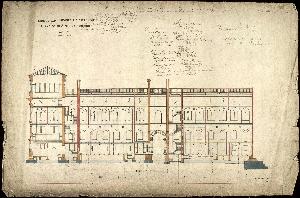Sir Robert Rowand Anderson
Sir Robert Rowand Anderson;Robert Rowand Anderson
Place: Liberton
Born: 1834
Death: 1921
Biography:
Sir Robert Rowand Anderson was a renowned Scottish Victorian architect, born on April 5, 1834, and died on June 1, 1921. He is best known for his work in the 'First Pointed' (or Early English) style, which characterized the architectural landscape of Scotland during the 19th century.
Early Life and Training
Anderson trained in the office of George Gilbert Scott in London before setting up his own practice in Edinburgh in 1860. This training had a significant impact on his work, as he was heavily influenced by Scott's style. During the 1860s, Anderson's main work was small churches in the 'First Pointed' (or Early English) style, which is characteristic of Scott's former assistants.
Notable Works
Some of Anderson's most notable works include the Scottish National Portrait Gallery, the Dome of Old College, Medical Faculty, and McEwan Hall at the University of Edinburgh. He also designed the Govan Old Parish Church and the Pearce Institute. Additionally, Anderson worked on the Central Hotel at Glasgow Central Station and the Catholic Apostolic Church in Edinburgh.
Legacy
Anderson's legacy can be seen in his contributions to Scottish architecture. His work has been recognized by the Stirling Smith Art Gallery and Museum, which features a collection of artworks and historical objects, including some of Anderson's designs. The museum is located in the heart of Stirling, Scotland, and is a must-visit destination for art lovers and enthusiasts alike.
- Important: Anderson's work has been widely recognized and appreciated by the art community.
- His contributions to Scottish architecture are still celebrated today.
- The Stirling Smith Art Gallery and Museum is a great place to learn more about Anderson's work and its significance in Scottish history.
Anderson's biography can be found on https://Wikioo.org, which provides a comprehensive overview of his life, work, and legacy. The website also features a collection of artworks by various artists, including Paul Gustave Louis Christophe Doré, Anders Leonard Zorn, and Paul Fordyce Maitland. These artists have made significant contributions to the world of art, and their work can be seen on https://Wikioo.org. In conclusion, Sir Robert Rowand Anderson was a talented Scottish architect who left a lasting legacy in the world of architecture. His work continues to be celebrated and recognized today, and his contributions to Scottish history are still widely appreciated.

